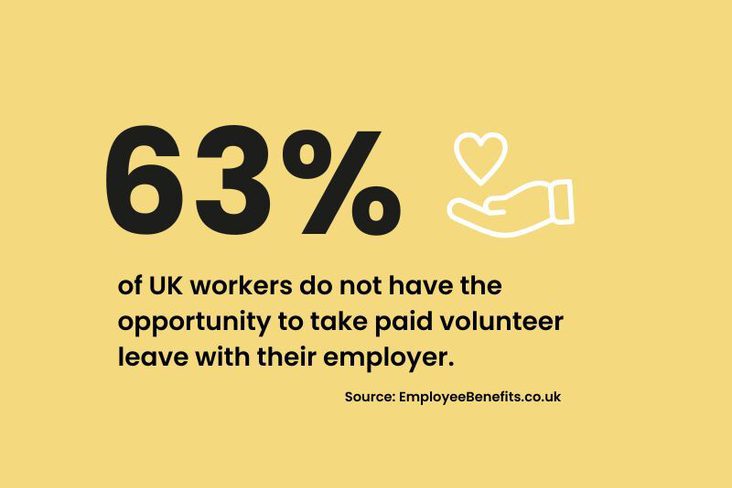The average person spends over 3,500 days at work during their lifetime. Although health and fitness are becoming increasingly important, many people are still not making enough time for exercise at work.
The most common excuse people make is that they’re busy and don’t have enough time to dedicate to fitness. We know that it is essential for a healthy life, so why do 65% of people in the UK not look after themselves as much as they should?
The situation has worsened in recent years, with people feeling they lack time for exercise and having a poor work-life balance, which is a major contributor.
People have become inactive, and this leaves them vulnerable to various health complications such as cardiovascular diseases. Recently, wellness-inclined people have started raising awareness of the benefits of keeping fit, especially for those working full time behind a desk.
In this article, we’ll explore six benefits of exercise at work.
1. Exercise at work alleviates chronic stress levels at work
Work can often be one of the greatest contributors to personal stress.
Work stress affects both the physical and mental aspects of humans — it is exhausting and depletes you of energy.
If the brain is suffering from chronic stress, there’s no way you can perform your job efficiently. Engaging in exercise while at work can help reduce stress levels by lowering cortisol levels in the body. This hormone wards off stress and anxiety.
It also ensures you’re in a more relaxed mood to become more efficient.
We also recommend that you take time off work regularly so you can stay refreshed and motivated.

2. It enhances your performance and productivity
Your performance level must be high throughout the day to excel at work. People who exercise at work can maintain this high level and have enough energy to complete additional tasks and surpass targets. Yet, people still find excuses for not exercising.
It is common to hear people say that they’ll exercise after work, but when they arrive home, they feel too tired. Their energy level is depleted the next day and their work performance drops.
Studies in the fitness industry always stress that personal trainer classes must teach clients the importance of staying active. This need to keep active and healthy applies to all ages and careers. When you exercise before and during work, it increases your alertness and you become more focused on what you are doing.
Why? Proper exercise improves cerebral blood flow, and when there’s adequate blood flow to the brain, performance at work is improved.
3. Exercise reduces your sitting time
Top health practitioners advise that sitting for long periods is just as bad as smoking. Worse still, ill-health and sudden death have been linked to inactivity.
Many office workers are guilty of sitting behind desks for long periods, which is dangerous for their health.
You do not have to engage in rigorous exercise — a 30-minute walk during your lunch break or a brisk walk up and down the stairs is better than nothing. You’ll be glad you did.
There are certain instances when you do have to sit for long periods. During these times, you could consider doing some exercises or using mini ellipticals, placed under your desk, to keep moving.
4. Exercise makes you punctual
Do you always feel very weak when you wake up? Do you feel like skipping work? Are you repeatedly showing up late? This might be due to a lack of physical activity.
Physically active people tend to feel refreshed and energised in the mornings. They do not have to worry about tiredness when attending meetings or seminars. Someone feeling refreshed and energised is unlikely to hit the snooze button 4 times, resulting in them being on time and ready to start work.
5. Exercise makes you sleep better
You might wonder how sleep is related to work, but here it is: getting quality sleep makes you feel much more refreshed during the day.
You’ll have increased motivation to go to work and get things done efficiently. On the other hand, irregular sleeping patterns will leave you tired and unmotivated. When you exercise, you become tired, and your energy levels deplete.
Sleep is a natural way of restoring lost energy. After a good night’s sleep, you’ll feel happier and more productive at work.
6. Exercise reduces memory decline rate
Here’s the truth — as we grow older, our memory rate suffers a decline.
This is just one of those truths we need to accept. However, regular exercise can help maintain or even improve your memory.
Your memory is vital for good performance at work and for tackling tasks effectively. An alert and healthy memory will give you a longer attention span and faster and more retentive memory.
Why? Exercise can increase the hippocampus: the brain part that aids learning and memory.
In conclusion
As a working professional, you need to be on top of your game at all times. This means making sure that both your mind and body are performing at their best.
Exercise is one of the best ways to ensure peak performance both inside the workplace and outside of it. So, don’t hesitate to build exercise into your daily routines as part of a healthy lifestyle.




